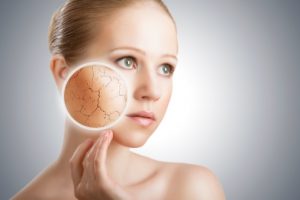 While nutrient deficiencies may be felt in the form of fatigue and persistent muscle cramps, there are also some signs that you’ll be able to see in your appearance. Nutrients are not only responsible for providing your body with energy, they also help with cell renewal, meaning poor nutrition may be evident in the appearance of your skin, gums, nails, and hair.
While nutrient deficiencies may be felt in the form of fatigue and persistent muscle cramps, there are also some signs that you’ll be able to see in your appearance. Nutrients are not only responsible for providing your body with energy, they also help with cell renewal, meaning poor nutrition may be evident in the appearance of your skin, gums, nails, and hair.
Continue reading to learn how nutrient deficiencies may affect different aspects of your appearance and what foods you can eat to restore your health.
Skin
Advertisement
Nutrient deficiencies can affect both the color and texture of your skin. If you are not getting enough healthy fats, your skin may become dry, scaly, and parched. This is because these fats are necessary for providing nourishment to your skin’s lipid barrier—the layer of oils responsible for protecting the skin from germs and toxins and retaining moisture. A lack of healthy dietary fats may also manifest in the form of stubborn acne, as the dehydrated lipid barrier can allow germs into the skin that may result in pimples. Also, nutrient deficiency may be seen in changes to your complexion. If you notice that your skin has become paler than usual, it could be due to an issue with your iron levels and should be addressed by a doctor.
Gums
While a little bit of blood while brushing your teeth is no cause for concern—you may need to floss more frequently or brush softer—blood without an apparent cause could be telling of a nutrient deficiency. Certain nutrients can act as clotting agents, and not getting enough may cause cuts and scrapes to bleed more than usual. Similarly, soft tissues such as the gums may begin bleeding spontaneously if you are lacking, though getting plenty of dark, leafy greens can help remedy this issue.
Nails
Nutrient deficiencies may manifest themselves in the form of thin, brittle nails. If your nails are constantly chipping, peeling, and breaking, it may be due to low biotin levels. Biotin is responsible for nourishing your nail plates, and not getting enough can affect the strength as well as the growth of your nails. Eating eggs, nuts, and whole grains can help you add more of this nutrient into your diet. Similarly, if your nails are pale, white, or rigid, it may be a sign that you are low in iron, while other color and texture changes may be telling of a variety of nutrient deficiencies.
Hair
Losing some hair—between 50 and 100 strands per day—is normal, but if you find your hair is thinning excessively, it may be a sign that you are lacking nutrients. You may need to up your protein intake if this is the case, as protein plays an important role in building strong and healthy hair. Similarly, if you’ve noticed that your hair has begun to gray prematurely, you may be lacking in certain nutrients responsible for creating and processing the melatonin that gives your hair its color. Try snacking on almonds and hazelnuts and enjoying fortified dairy products to prevent going gray too soon.
Nutrient deficiencies may manifest in the way you look and feel, so if you are experiencing fatigue and have noticed any changes to your skin, gums, nails, or hair that you can’t explain, it may be worthwhile to pay a visit to your doctor.
Related: Nutrient deficiency caused by not eating variety of foods
